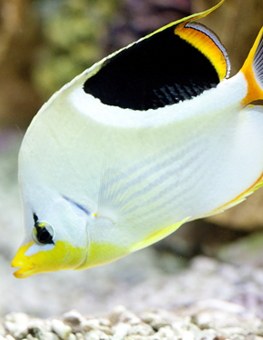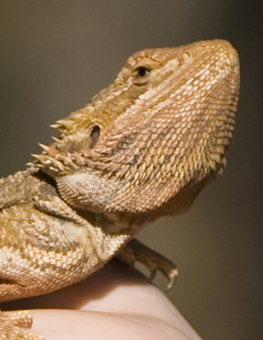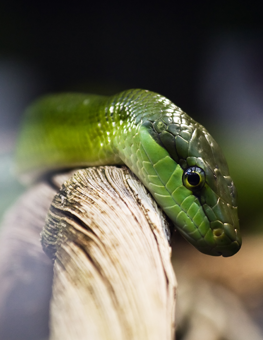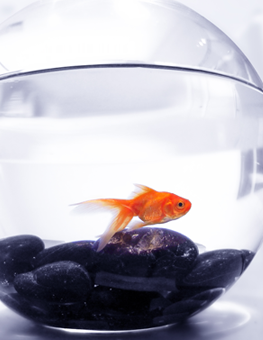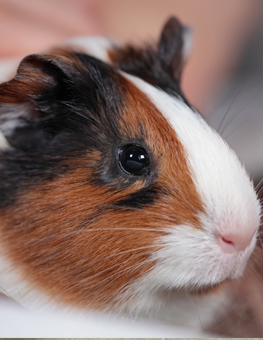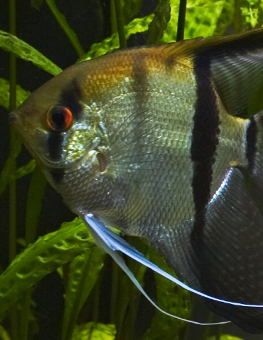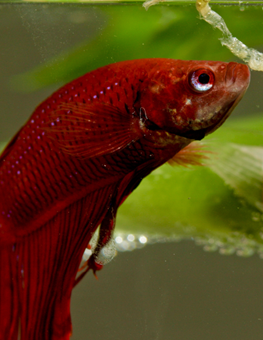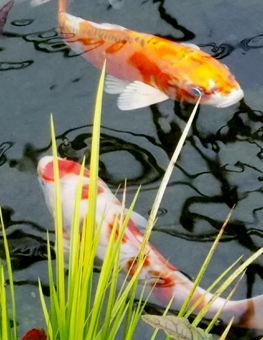How to Deal With an Overweight Fish
If your fish is looking a little overweight/fat, it could be caused by a number of different things, and not just that he’s eating too much.
If you’ve been watching your fish lately and one of them seems to be getting pretty weighty, you may just think he’s been getting a little too much to eat. This may be the case, but it’s actually fairly unlikely. In fact, there are many more reasons that fish become fat that don’t involve food at all. It’s important to try to figure out why exactly your fish is gaining weight and getting fat, as some causes can be quite serious. The following guide will help you figure out why your fish is looking large and what you can do about it.
- Carrying Eggs - One reason your fish may appear slightly bigger is because it is carrying eggs. If your fish is a female, is not overly fat, and is normal in most other regards, this is a very high possibility. Another indication is if your fish has an enlarged vent; this is where the eggs will come out. If you believe your fish is carrying eggs, you may want to watch to see if she is egg-bound, a condition where she keeps her eggs because the environment is not right for breeding. For her to release her eggs, there needs to be a male fish present, and good water with the right temperature. This varies species to species. If the fish remains egg-bound, she could become sick and infected.
- Sickness - Another reason your fish may be larger than usual is disease. The main culprit for freshwater aquarium fish is Dropsy. Dropsy causes your fish to become much larger than usual and is often characterized by protruding scales, making your fish look like a pinecone. If your fish is showing these symptoms, you may want to quarantine your fish from others, as Dropsy can spread. Unfortunately, Dropsy is usually fatal, but you may want to talk to your veterinarian about possible antibiotic treatments that could give your fish a chance of survival.Other possible ailments that could cause enlargement are usually kidney diseases. Again, you should talk to your veterinarian if you believe that your fish is sick.
- Tumors - A tumor may be another cause of your fish looking larger or fat. Tumors will usually be uneven and are typically benign. Even if they are cancerous, there are rarely treatments for fish.
- Overfeeding - Sometimes a fish may become fat or swollen as a result of his diet. Often, overfeeding or the wrong types of food can cause constipation and other digestive issues. You can try to feed your fish less or healthier types of food, which varies depending on the species of fish.Overfeeding can also have more serious consequences than digestive ones, though. More food means more waste, and overfeeding increases levels of ammonia and decreases levels of oxygen in the water. If you see your fish gasping at the surface of the water, this means that the water quality is poor and you may want to try reducing the amount of food they are being given.
If the increase in size does not appear to be the result of any of the above factors, it is possible that your fish is healthy and simply getting bigger. If you have any concerns about the health of your fish, though, it would be wise to contact a veterinarian.




